-
 Univers
Univers
-
 Ebooks
Ebooks
-
 Livres audio
Livres audio
-
 Presse
Presse
-
 Podcasts
Podcasts
-
 BD
BD
-
 Documents
Documents
-
- Cours
- Révisions
- Ressources pédagogiques
- Sciences de l’éducation
- Manuels scolaires
- Langues
- Travaux de classe
- Annales de BEP
- Etudes supérieures
- Maternelle et primaire
- Fiches de lecture
- Orientation scolaire
- Méthodologie
- Corrigés de devoir
- Annales d’examens et concours
- Annales du bac
- Annales du brevet
- Rapports de stage
La lecture à portée de main
Vous pourrez modifier la taille du texte de cet ouvrage
Découvre YouScribe en t'inscrivant gratuitement
Je m'inscrisDécouvre YouScribe en t'inscrivant gratuitement
Je m'inscrisEn savoir plus
Vous pourrez modifier la taille du texte de cet ouvrage
En savoir plus

Description
The Olive Fairy Book is a 20th century collection of short fiction, that includes stories such as The Blue Bird, which follows a young maiden, Florine, who is locked away after her sister becomes jealous of her beauty and charm. Also featured in this collection is The Clever Weaver, an Armenian tale that depicts a kingdom in scrambles after a mysterious foreign envoy puzzles the king with a riddle. The Green Knight is a tale borrowed from Danish folklore. After a widow and her daughter manipulate themselves into the King and the Princess’s favor, the king marries the widow, who then begins to mistreat the princess so badly that the young woman is sent away, where she hears of the noble Green Knight, a man in need of saving. With diverse origins of Turkey, India, Denmark, Armenia, Sudan, and more, The Olive Fairy Book by Andrew and Leonora Lang is an obscure collection rich with culture and character building. Featuring unique characters, such as a giggling king, dragons, and ogres, The Olive Fairy Book provides and unforgettable experience suitable for readers of all ages. This edition of The Olive Fairy Book by Andrew and Leonora Lang now features an eye-catching new cover design and is printed in a font that is both modern and readable. With these accommodations, this edition of The Olive Fairy Book creates an accessible and pleasant reading experience for modern audiences while restoring the original imagination and mastery of Andrew and Leonora Lang’s work.
Sujets
Informations
| Publié par | Mint Editions |
| Date de parution | 08 juin 2021 |
| Nombre de lectures | 0 |
| EAN13 | 9781513286723 |
| Langue | English |
| Poids de l'ouvrage | 1 Mo |
Informations légales : prix de location à la page 0,0500€. Cette information est donnée uniquement à titre indicatif conformément à la législation en vigueur.
Extrait
The Olive Fairy Book
Andrew Lang
The Olive Fairy Book was first published in 1907.
This edition published by Mint Editions 2021.
ISBN 9781513281704 | E-ISBN 9781513286723
Published by Mint Editions®
minteditionbooks .com
Publishing Director: Jennifer Newens
Design & Production: Rachel Lopez Metzger
Project Manager: Micaela Clark
Typesetting: Westchester Publishing Services
C ONTENTS P REFACE M ADSCHUN T HE B LUE P ARROT G EIRLAUG THE K ING ’ S D AUGHTER T HE S TORY OF L ITTLE K ING L OC “A L ONG - BOW S TORY ” J ACKAL OR T IGER ? T HE C OMB AND THE C OLLAR T HE T HANKSGIVING OF THE W AZIR S AMBA THE C OWARD K UPTI AND I MANI T HE S TRANGE A DVENTURES OF L ITTLE M AIA D IAMOND CUT D IAMOND T HE G REEN K NIGHT T HE F IVE W ISE W ORDS OF THE G URU T HE G OLDEN - HEADED F ISH D ORANI T HE S ATIN S URGEON T HE B ILLY G OAT AND THE K ING T HE S TORY OF Z OULVISIA G RASP ALL , L OSE ALL T HE F ATE OF THE T URTLE T HE S NAKE P RINCE T HE P RINCE AND P RINCESS IN THE F OREST T HE C LEVER W EAVER T HE B OY WHO FOUND F EAR AT LAST H E W INS WHO W AITS T HE S TEEL C ANE T HE P UNISHMENT OF THE F AIRY G ANGANA T HE S ILENT P RINCESS
P REFACE
Many years ago my friend and publisher, Mr. Charles Longman, presented me with Le Cabinet des Fées (“The Fairy Cabinet”). This work almost requires a swinging bookcase for its accommodation, like the Encyclopædia Britannica , and in a revolving bookcase I bestowed the volumes. Circumstances of an intimately domestic character, “not wholly unconnected,” as Mr. Micawber might have said, with the narrowness of my study (in which it is impossible to “swing a cat”), prevent the revolving bookcase from revolving at this moment. I can see, however, that the Fairy Cabinet contains at least forty volumes, and I think there are about sixty in all. This great plenitude of fairy tales from all quarters presents legends of fairies, witches, genii or Djinn, monsters, dragons, wicked step-mothers, princesses, pretty or plain, princes lucky or unlucky, giants, dwarfs, and enchantments. The stories begin with those which children like best—the old Blue Beard , Puss in Boots , Hop o’ my Thumb , Little Red Riding Hood , The Sleeping Beauty , and Toads and Pearls . These were first collected, written, and printed at Paris in 1697. The author was Monsieur Charles Perrault, a famous personage in a great perruque , who in his day wrote large volumes now unread. He never dreamed that he was to be remembered mainly by the shabby little volume with the tiny headpiece pictures—how unlike the fairy way of drawing by Mr. Ford, said to be known as “Over-the-wall Ford” among authors who play cricket, because of the force with which he swipes! Perrault picked up the rustic tales which the nurse of his little boy used to tell, and he told them again in his own courtly, witty way. They do not seem to have been translated into English until nearly thirty years later, when they were published in English, with the French on the opposite page, by a Mr. Pote, a bookseller at Eton. Probably the younger Eton boys learned as much French as they condescended to acquire from these fairy tales, which are certainly more amusing than the Télémaque of Messire Fran ç ois de Salignac de la Motte-F é nelon, tutor of the children of France, Archbishop Duke of Cambrai, and Prince of the Holy Roman Empire.
The success of Perrault was based on the pleasure which the court of Louis XIV took in fairy tales; we know that they were told among Court ladies, from a letter of Madame de S é vign é . Naturally, Perrault had imitators, such as Madame d’Aulnoy, a wandering lady of more wit than reputation. To her we owe Beauty and the Beast and The Yellow Dwarf . Anthony Hamilton tried his hand with The Ram , a story too prolix and confused, best remembered for the remark, “Ram, my friend, begin at the beginning!” Indeed, the narrative style of the Ram is lacking in lucidity! Then came The Arabian Nights , translated by Monsieur Galland. Nobody has translated The Arabian Nights so well as Galland. His is the reverse of a scientific rendering, but it is as pleasantly readable as the Iliad and Odyssey would be if Alexandre Dumas had kept his promise to translate Homer. Galland omitted the verses and a great number of passages which nobody would miss, though the anthropologist is supposed to find them valuable and instructive in later scientific translations which do not amuse. Later, Persian Tales, Tales of the Sea, and original inventions, more or less on the fairy model, were composed by industrious men and women. They are far too long—are novels, indeed, and would please no child or mature person of taste. All these were collected in the vast Fairy Cabinet, published in 1786, just before the Revolution. Probably their attempt to be simple charmed a society which was extremely artificial, talked about “the simple life” and the “state of nature,” and was on the eve of a revolution in which human nature revealed her most primitive traits in orgies of blood.
That was the end of the Court and of the Court Fairy Tales, and just when they were demolished, learned men like the Grimms and Sir Walter Scott began to take an interest in the popular tales of peasants and savages all the world over. All the world over the tales were found to be essentially the same things. Cinderella is everywhere; a whole book has been written on Cinderella by Miss Cox, and a very good book it is, but not interesting to children. For them the best of the collections of foreign fairy tales are the German stories by the Grimms, the Tales from the Norse , by Sir G. W. Dasent, (which some foolish “grown-ups” denounced as “improper”), and Miss Frere’s Indian stories. There are hundreds of collections of savage and peasant fairy tales, but, though many of these are most interesting, especially Bishop Callaway’s Zulu stories (with the Zulu versions), these do not come in the way of parents and uncles, and therefore do not come in the way of children. It is my wish that children should be allowed to choose their own books. Let their friends give them the money and turn them loose in the book shops! They know their own tastes, and if the children are born bookish, while their dear parents are the reverse, (and this does occur!), then the children make the better choice. They are unaffected in their selections; some want Shakespeares of their own, and some prefer a volume entitled Buster Brown . A few—alas, how few!—are fond of poetry; a still smaller number are fond of history. “We know that there are no fairies, but history stories are true !” say these little innocents. I am not so sure that there are no fairies, and I am only too well aware that the best “history stories” are not true.
What children do love is ghost stories. “Tell us a ghost story!” they cry, and I am able to meet the demand, with which I am in sincere sympathy. Only strong control prevents me from telling the last true ghost story which I heard yesterday. It would suit children excellently well. “The Grey Ghost Story Book” would be a favourite. At a very early age I read a number of advertisements of books, and wept because I could not buy dozens of them, and somebody gave me a book on Botany! It looked all right, nicely bound in green cloth, but within it was full of all manner of tediousness.
In our Fairy Cabinet, which cannot extend to sixty volumes, we have aimed at pleasing children, not “grown-ups,” at whom the old French writers directed their romances, but have hunted for fairy tales in all quarters, not in Europe alone. In this volume we open, thanks to Dr. Ignaz K ü nos, with a story from the Turks. “Little King Loc” is an original invention by M. Anatole France, which he very kindly permitted Mrs. Lang to adapt from L’Abeille .
Major Campbell, as previously, tells tales which he collected among the natives of India. But the sources are usually named at the end of each story, and when they are not named children will not miss them. Mrs. Lang, except in cases mentioned, has translated and adapted to the conditions of young readers the bulk of the collection, and Mrs. Skovgaard-Pedersen has done “The Green Knight” from the Danish. I must especially thank Monsieur Macler for permitting us to use some of his Contes Arméniens (Paris: Ernest Leroux, Editeur).
M ADSCHUN 1
O nce upon a time there lived, in a small cottage among some hills, a woman with her son, and, to her great grief, the young man, though hardly more than twenty years of age, had not as much hair on his head as a baby. But, old as he looked, the youth was very idle, and whatever trade his mother put him to he refused to work, and in a few days always came home again.
On a fine summer morning he was lying as usual half asleep in the little garden in front of the cottage when the sultan’s daughter came riding by, followed by a number of gaily dressed ladies. The youth lazily raised himself on his elbow to look at her, and that one glance changed his whole nature.
“I will marry her and nobody else,” he thought. And jumping up, he went to find his mother.
“You must go at once to the sultan, and tell him that I want his daughter for my wife,” he said.
“What?” shouted the old woman, shrinking back into a corner, for nothing but sudden madness could explain such an amazing errand.
“Don’t you understand? You must go at once to the sultan and tell him that I want his daughter for my wife,” repeated the youth impatiently.
“But—but, do you know what you are saying?” stammered the mother. “You will learn no trade, and have only the five gold pieces left you by your father, and can you really expect that the sultan would give his daughter to a penniless bald-pate like you?”
“That is my affair; do as I bid you.” And neither day nor night did her son cease tormenting her, till, in despair, she put on her best clothes, and wrapped her veil about her, and went over the hill to the palace.
It was the day that t
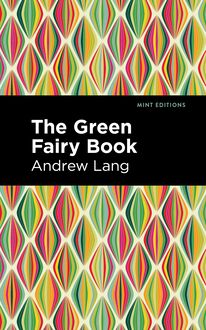
Ebooks
The Green Fairy Book
Andrew Lang


Ebooks
The Grey Fairy Book
Andrew Lang

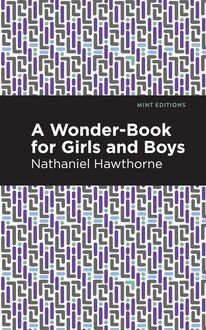
Ebooks
A Wonder Book for Girls and Boys
Nathaniel Hawthorne

Ebooks
Jeunesse - Pour les 6 - 12 ans
A Wonder Book for Girls and Boys
Nathaniel Hawthorne
73 pages
English

Ebooks
The Golden Boys on the River Drive
L. P. Wyman

Ebooks
Jeunesse - Pour les 6 - 12 ans
The Golden Boys on the River Drive
L. P. Wyman
88 pages
English
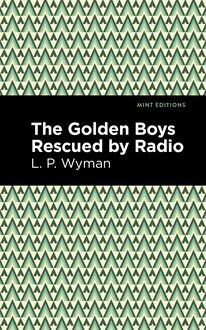
Ebooks
The Golden Boys Rescued by Radio
L. P. Wyman

Ebooks
Jeunesse - Pour les 6 - 12 ans
The Golden Boys Rescued by Radio
L. P. Wyman
89 pages
English
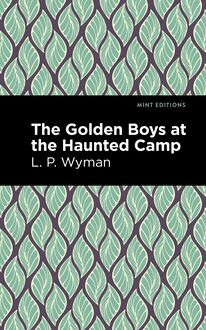
Ebooks
The Golden Boys at the Haunted Camp
L. P. Wyman

Ebooks
Jeunesse - Pour les 6 - 12 ans
The Golden Boys at the Haunted Camp
L. P. Wyman
91 pages
English

Ebooks
The Golden Boys With the Lumber Jacks
L. P. Wyman

Ebooks
Jeunesse - Pour les 6 - 12 ans
The Golden Boys With the Lumber Jacks
L. P. Wyman
87 pages
English
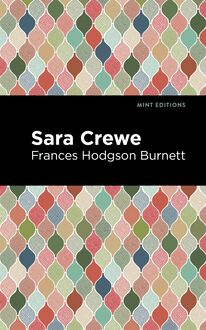
Ebooks
Sara Crewe
Frances Hodgson Burnett

Ebooks
Jeunesse - Pour les 6 - 12 ans
Sara Crewe
Frances Hodgson Burnett
26 pages
English

Ebooks
The Tapestry Room
Mary Louisa Molesworth

Ebooks
Jeunesse - Pour les 6 - 12 ans
The Tapestry Room
Mary Louisa Molesworth
79 pages
English

Ebooks
The Red Book of Heroes
Andrew Lang

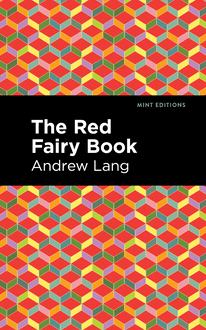
Ebooks
The Red Fairy Book
Andrew Lang

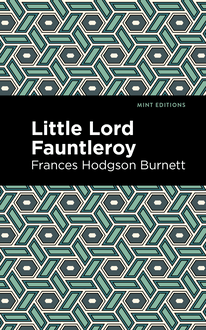
Ebooks
Little Lord Fontleroy
Frances Hodgson Burnett

Ebooks
Jeunesse - Pour les 6 - 12 ans
Little Lord Fontleroy
Frances Hodgson Burnett
87 pages
English
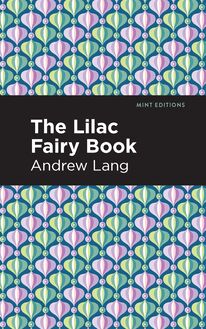
Ebooks
The Lilac Fairy Book
Andrew Lang

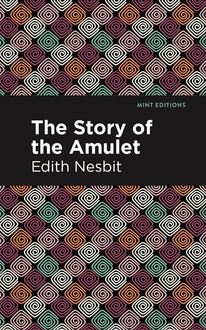
Ebooks
The Story of the Amulet
Edith Nesbit

Ebooks
Jeunesse - Pour les 6 - 12 ans
The Story of the Amulet
Edith Nesbit
111 pages
English
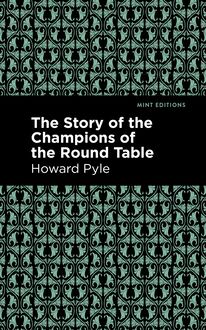
Ebooks
The Story of the Champions of the Round Table
Howard Pyle

Ebooks
Contes
The Story of the Champions of the Round Table
Howard Pyle
174 pages
English
-
 Univers
Univers
-
 Ebooks
Ebooks
-
 Livres audio
Livres audio
-
 Presse
Presse
-
 Podcasts
Podcasts
-
 BD
BD
-
 Documents
Documents
-
Jeunesse
-
Littérature
-
Ressources professionnelles
-
Santé et bien-être
-
Savoirs
-
Education
-
Loisirs et hobbies
-
Art, musique et cinéma
-
Actualité et débat de société
-
Jeunesse
-
Littérature
-
Ressources professionnelles
-
Santé et bien-être
-
Savoirs
-
Education
-
Loisirs et hobbies
-
Art, musique et cinéma
-
Actualité et débat de société
-
Actualités
-
Lifestyle
-
Presse jeunesse
-
Presse professionnelle
-
Pratique
-
Presse sportive
-
Presse internationale
-
Culture & Médias
-
Action et Aventures
-
Science-fiction et Fantasy
-
Société
-
Jeunesse
-
Littérature
-
Ressources professionnelles
-
Santé et bien-être
-
Savoirs
-
Education
-
Loisirs et hobbies
-
Art, musique et cinéma
-
Actualité et débat de société
- Cours
- Révisions
- Ressources pédagogiques
- Sciences de l’éducation
- Manuels scolaires
- Langues
- Travaux de classe
- Annales de BEP
- Etudes supérieures
- Maternelle et primaire
- Fiches de lecture
- Orientation scolaire
- Méthodologie
- Corrigés de devoir
- Annales d’examens et concours
- Annales du bac
- Annales du brevet
- Rapports de stage





